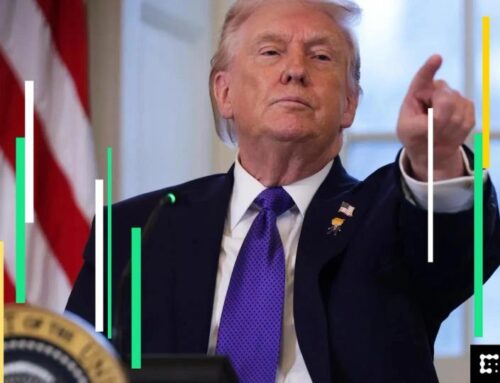The Fight For Cannabis Could Be Headed To Supreme Court
June 2, 2025
First Circuit unconvinced, but there could be hope from the highest court
A group of cannabis companies looking to overturn the plant’s illicit status at the national level could be on their way to the U.S. Supreme Court. And there is reason for them to be optimistic that at least one justice is willing to take the case.
Last week the First Circuit Court of Appeals ruled against the group, upholding a lower courts rejection of their lawsuit challenging the federal prohibition of cannabis.
Verano Holding Corp., which operates in 14 different states, along with Massachusetts-based companies Canna Provisions, Wiseacre Farms, and cannabis courier Gyasi Sellers sued the government in the U.S. District Court of Massachusetts on Oct. 26, 2023, arguing that the CSA should no longer apply to cannabis because of the federal government’s growing acceptance of legal state markets over the last decade.
At the same time, the plaintiffs say that the law unfairly limits access to federal grants, banking services, payroll services and investments, as well as from processing credit cards for purchases. Cannabis operators are often required to deal in large sums of cash, which they argue makes them ripe for robbery, potentially creating a public safety risk.
“We thus conclude that the appellants have failed to show that there is no rational basis for
concluding that their activity substantially affects interstate commerce,” wrote Chief Circuit Judge David Barron in a 22-page opinion released May 27.
The next legal venue for the plaintiffs would be the U.S. Supreme Court (SCOTUS), but only if the court agrees to hear the case. There is no guarantee that SCOTUS will agree to hear a case, but Associate Justice Clarence Thomas has made it clear that he thinks it is time that the highest court in the land reconsiders the legality of cannabis.
Clarence Thomas has questioned prohibition in the past
The U.S. Supreme Court declined to hear Standing Akimbo v. United States in 2021, which involved a medical dispensary in Colorado suing over its inability to write off business expenses on their federal taxes.
In declining to hear the case, Justice Clarence Thomas wrote a five-page statement in which he argued that it might be time to revisit Gonzalez v. Raich. In that earlier 2005 case, Justice John Paul Stevens argued in his majority opinion that despite state law, there was still a clear intention from the federal government to prevent the spread of illegal pot across state lines.
Since then more states have legalized medical and adult-use cannabis, and the federal government has taken several active steps to allow state-legal cannabis businesses, such as defunding law enforcement efforts against cannabis.
“The Federal Government’s current approach to marijuana bears little resemblance to the watertight nationwide prohibition that a closely divided Court found necessary to justify the Government’s blanket prohibition in Raich,” wrote Thompson. “A prohibition on intrastate use or cultivation of marijuana may no longer be necessary or proper to support the Federal Government’s piecemeal approach.”
The first major challenge from the federal government to state-legal medical cannabis took place during the George W. Bush administration, when Bush’s Department of Justice began cracking down on medical cannabis in California. Angel Raich and Diane Monson sue the federal government after DEA agents raided their homes and destroyed the cannabis plants they each grew for personal use to treat their respective chronic health problems.
That case, Gonzalez v. Raich, ultimately made it to the Supreme Count, which ruled the U.S. Constitution’s Commerce Clause, which bars the federal government from interfering in interstate commerce, does not apply to state-legal cannabis as long there was still a federal prohibition. Justice John Paul Stevens argued in his majority opinion that despite state law, there was still a clear intention from the federal government to prevent the spread of illegal pot across state lines.
The changing tide of pot’s legal status
The plaintiffs in the Canna Provisions case argued before the First Circuit that this is no longer the case.
Congress allowed Washington D.C. to legalize medical cannabis in 2010. The following year, then-Deputy Attorney General James Cole issued what became known as the “Cole Memo” which instructed the Department of Justice to prioritize enforcement of the federal prohibition against individuals in compliance with state regulations.
Four years later, Congress enacted the Rohrabacher-Farr Amendment which effectively defunded any DOJ action against state-legal cannabis. That amendment has been renewed every year since.
Donald Trump’s first attorney general, Jeff Sessions, actually rescinded the Cole Memo in 2017, but since then the DOJ has continued to operate as if the memo was still in effect.
Meanwhile, about three-quarters of all states have legalized medical and half have legalized adult-use.
So far, the courts have remained unconvinced that these changes represent a significant sea change in how the federal government treats cannabis, but it is entirely possible that the Supreme Court sees things differently.
Search
RECENT PRESS RELEASES
Related Post




